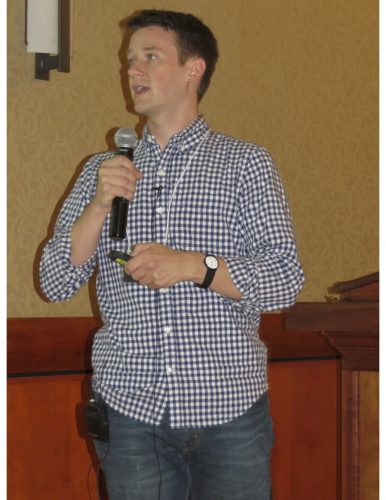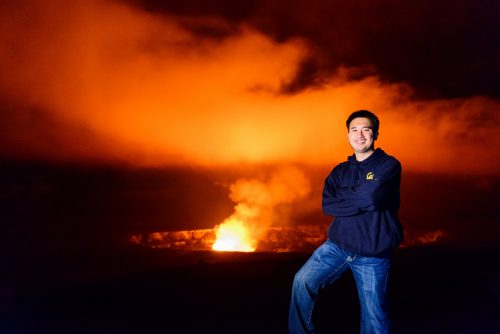- Date: 12 Apr 2019
- Comments: (0)
- Categories: For Everyone
Get to Know Gemini is a series of blog posts aimed to highlight the different careers, backgrounds, and types of people contributing to Gemini Observatory and its science.

Image credit: Jen Miller
Name: Lindsay Magill
What is your current position and at which telescope?
Science Operations Specialist, Gemini South
In four lines or less, explain what you do as part of the Gemini Observatory team?
I am involved in telescope operations. I have one or two night shifts a month when I act as the telescope operator or the staff observer. The rest of the time when I’m on day shift I spend checking data we’ve taken, making sure the instruments are prepped for the night crew, as well as working on longer term projects like upgrading software, maintaining documentation, and up until recently serving on the Time Allocation Committee.
How long have you worked for Gemini?
Almost 6 years.
What drew you to this job?
While I was doing my PhD, I worked as a Student Support Astronomer for a year at the Isaac Newton Telescope on La Palma. As I was doing that I realised that I much preferred being part of telescope operations and observing more than I enjoyed writing papers, so this job seemed like an ideal fit.
What is the best part of your job?
Observing on a clear night, especially when we get to go up to the mountain to observe.
Where are you originally from/where did you grow up?
I was born in the US, and lived there during my early childhood before moving back to Northern Ireland when I was 11, which is where my parents are originally from.
What skill do you think is most important to know for your job?
How to get through an entire night without falling asleep!
Why is astronomy important?
I’m not really interested in astronomy because I think it’s important. I don’t think it is particularly, at least not the way medical research is. But it’s fascinating, and it’s beautiful, and occasionally you find out something that turns out to be important to other people, often by accident. But it isn’t *why* I’m interested in astronomy, I just think it’s really cool.
What is your favorite movie?
The Martian
What is the latest book you have read?
The Sandman, by Neil Gaiman.
What three albums would you bring with you to a desert island?
Flood, by They Might be Giants; 40 Licks, by the Rolling Stones; Amanda Palmer Performs the Popular Hits of Radiohead on her Magical Ukulele
What is one hobby of yours?
I’m teaching myself to play electric guitar.
Favorite beverage?
A good strong Assam tea.
Check back next month to learn more about the staff that help Gemini to explore the Universe and share its wonders!








